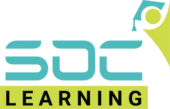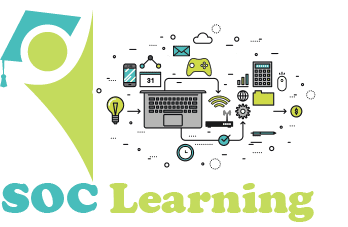Introduction
Python is one of the world’s most popular programming languages, noted for its simplicity and adaptability. Whether you’re a newbie just getting started with coding or an experienced professional looking to brush up on your abilities, finding the ideal websites to learn Python is critical. To make things easier, we’ve compiled a list of the top ten websites for learning Python. Dive in and see which platform best suits your needs!
Why Learn Python?
Python is widely utilised in various areas, including web development, data science, artificial intelligence, and automation. It is beginner-friendly, has a large community, and numerous libraries to help with complex jobs. According to a 2023 Stack Overflow study, Python is the third most popular language, making it an essential ability for budding developers.
Top 10 Websites to Learn Python: Unlock Your Programming Potential Today
1. Codecademy
Website: Codecademy
Codecademy provides interactive classes that take you from Python’s fundamentals to sophisticated ideas. You will learn more quickly thanks to the hands-on coding challenges and real-time feedback. It’s ideal for novices who like a structured learning experience.
Key features:
- Interactive coding environment
- Beginner to advanced courses
- Career-oriented paths such as data science and web development
2. Coursera
Website: Coursera
Coursera collaborates with renowned universities and organisations to offer Python courses. You can get instructions from places like the University of Michigan or Google.
Key features:
- University-certified courses
- Flexible learning schedules
- Option for free audits or purchased certificates
3. edX
Website: edX
edX provides high-quality courses created by major universities including Harvard and MIT. Python courses on edX are available at all skill levels, from introductory programming to speciality disciplines such as machine learning.
Key features:
- Expert-led courses
- Accredited Certifications
- Free access to course resources
4. Real Python
Website: Real Python
Real Python is an essential resource for Python aficionados. It provides lessons, video courses, and detailed guides on practical Python issues.
Key features:
- Focus on real-world applications
- Comprehensive tutorials
- Consistently updated content
5. Udemy
Website: Udemy
Udemy offers thousands of Python classes, making it a diverse option. From beginner-level principles to specialised topics like as Flask and Django, Udemy’s low prices make it accessible to everyone.
Key features:
- A wide selection of courses
- Lifetime access
- Regular discounts and promotions
6. DataCamp
Website: DataCamp
Udemy has thousands of Python classes, making it a broad choice. Udemy’s low pricing make it affordable for everyone, from beginner-level principles to specific topics such as Flask and Django.
Key Features:
- A diverse array of courses
- You will have lifetime access
- Regular discounts and promotions
7. Python.org
Website: Python.org
Python.org, the official Python website, offers extensive resources for learners. Its beginner’s guide is a great starting point, and its library documentation helps you delve deeper.
Key Features:
- Official Python tutorials
- Access to Python documentation
- Free resources
Also Read – 10 Reasons to Learn Python in 2025
8. Pluralsight
Website: Pluralsight
Pluralsight provides highly chosen Python courses, ideal for developers looking to improve their abilities. It includes exams to track your progress and tailored learning routes.
Key features:
- Personalised learning paths
- Skill assessments
- High-quality video content
9. W3Schools
Website: W3Schools
W3Schools is a user-friendly platform that includes interactive tutorials. Its Python portion covers key topics with hands-on tasks, making it an excellent resource for self-paced learners.
Key features:
- Interactive Python exercises
- Beginner-friendly approach
- Access to tutorials is free
10. FreeCodeCamp
Website: FreeCodeCamp
FreeCodeCamp is a non-profit company that provides free coding classes. Its Python program is part of the Scientific Computing certification and is ideal for students on a budget.
Key features:
- Free courses
- Community support
- Hands-on projects
Conclusion
Python has never been easier to learn, thanks to the abundance of resources available online. The platforms mentioned above appeal to a variety of learning methods, budgets, and goals. Whether you’re just starting out or want to focus in disciplines like data science or web development, there’s an excellent resource for you. Begin your Python career today and discover limitless chances in the technology industry!
Frequently Asked Questions
For novices, Codecademy and W3Schools are ideal options because to their interactive and simple tutorials.
Yes! Python.org, FreeCodeCamp, and W3Schools provide free Python materials and tutorials.
DataCamp and Coursera stand out for data science aficionados because they provide specific courses in data analysis and machine learning.
Yes, sites such as Coursera, edX, and Pluralsight provide approved credentials that can improve your CV.
It all depends on your dedication and previous experience. Beginners can typically master Python basics in 6-8 weeks of steady practice.
Python is renowned for being among the simplest programming languages to learn, particularly for novices. It is less daunting than languages like C++ or Java because of its clear, uncomplicated grammar that closely mimics standard English. You can begin writing worthwhile projects using Python quickly; you don’t need to spend weeks learning the fundamentals or memorising complex rules. Another factor contributing to its simplicity is the abundance of online resources and communities, which ensure that you never run out of lessons, discussion boards, or documentation to help you along the way. Python offers a smooth learning curve without sacrificing power and versatility, regardless of your level of programming experience.
There’s no shortage of platforms that teach Python, but a few stand out for their quality, accessibility, and beginner-friendly approach:
- School of Coding & AI – Offers structured, hands-on Python courses tailored for all age groups, with expert guidance and live coding sessions.
- Python.org – The official Python website, with comprehensive tutorials, beginner guides, and documentation.
- Codecademy – An interactive platform that teaches Python through bite-sized lessons and real-time code execution.
- W3Schools – Great for quick reference and step-by-step learning, with simple explanations and examples.
- Real Python – A hub for in-depth Python tutorials, articles, and projects for learners of all levels.
- Coursera – Offers university-level Python courses, such as the University of Michigan’s “Python for Everybody”.
- SoloLearn – A mobile-friendly platform that lets you learn Python anywhere, complete with quizzes and coding challenges.
- freeCodeCamp – A completely free resource with full Python crash courses and project-based learning videos.
- Kaggle – Ideal for those interested in Python for data science, with coding exercises, datasets, and competitions.
- edX – Hosts Python courses from top universities like Harvard and MIT, suitable for both beginners and advanced learners.
Even if you can’t become an expert in Python in a single day, you can definitely learn the fundamentals in a day. Because of Python’s ease of use, you can pick up basic concepts like variables, loops, conditionals, and simple functions in a single day. By the end of your first learning session, you could even be able to write a basic data processing script, text-based game, or calculator with the aid of beginner-friendly tools. However, it takes weeks or months of constant practice to become proficient in Python, particularly for domains like web development, data science, or artificial intelligence. Consider the first day as the beginning of a much longer trip.
Yes, Python’s robust foundations and adaptability make it an excellent choice for web development. Developers can quickly create dynamic, secure, and scalable websites with frameworks like Django and Flask. Flask provides greater freedom and simplicity for smaller projects, but Django is renowned for its “batteries-included” approach, which means it comes with built-in capabilities like user authentication and database administration. Python is also frequently used in back-end programming, managing the server communications, database interactions, and logic that enable contemporary websites to operate. Python is a comprehensive solution for creating anything from small blogs to complex online apps because it also works well with front-end technologies, APIs, and cloud services.








